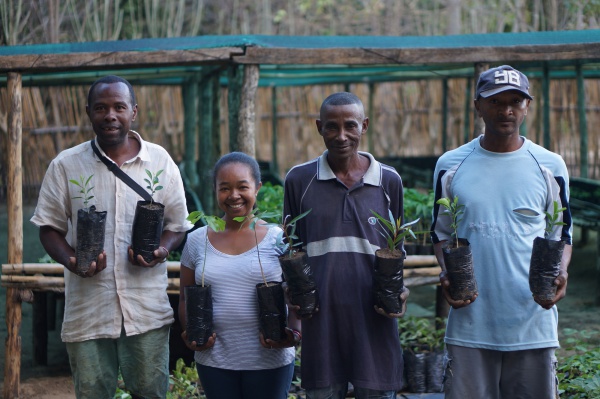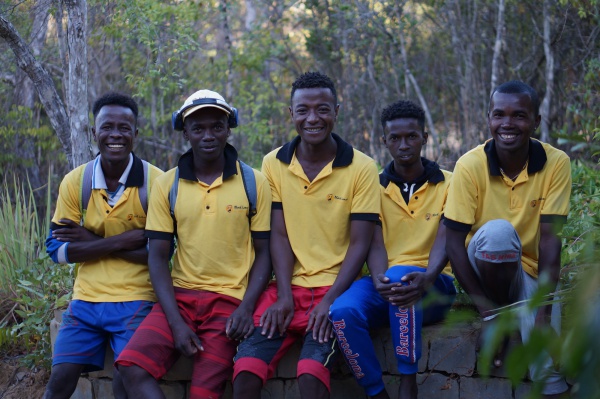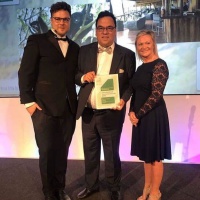Difference between revisions of "Black Lemur Camp"
CampMaster (talk | contribs) |
CampMaster (talk | contribs) |
||
| (15 intermediate revisions by the same user not shown) | |||
| Line 1: | Line 1: | ||
| − | '''Black Lemur Camp is an eco-lodge located in the Andrafiamena protected area, 100 kilometres south of | + | '''Black Lemur Camp is an eco-lodge located in the Andrafiamena protected area, 100 kilometres south of Diego Suarez. The camp, which opened in 2015, is based on the concept of sustainable tourism by supporting a major reforestation initiative in the area as well as employing locals from nearby villages.''' |
{| class="imageTable" | {| class="imageTable" | ||
| Line 10: | Line 10: | ||
|} | |} | ||
| − | The 13 wooden, palm thatched bungalows are built on stilts and can be adjusted as single, double or family bungalows according to the number of guests. From almost all the rooms guests have great views onto the Andrafiamena | + | The 13 wooden, palm-thatched bungalows are built on stilts and can be adjusted as single, double or family bungalows according to the number of guests. From almost all the rooms guests have great views onto the Andrafiamena Valley with the Ambotonganana hill and Montagne d'Ambre (Ambre Mountain) in the background. The bungalows are separated by trees from each other and are solar-powered, have a large bathroom with hot and cold water and an open terrace. |
{| class="imageTable" | {| class="imageTable" | ||
|- | |- | ||
| − | |colspan="3" | [[File:Black_Lemur_Camp | + | |colspan="3" | [[File:Black_Lemur_Camp 120.jpg|600px]] |
|- | |- | ||
|[[File:Black_Lemur_Camp_069.jpg|196px]] | |[[File:Black_Lemur_Camp_069.jpg|196px]] | ||
|align="center"|[[File:Black_Lemur_Camp_050.jpg|196px]] | |align="center"|[[File:Black_Lemur_Camp_050.jpg|196px]] | ||
|align="right"|[[File:Black_Lemur_Camp_063.jpg|196px]] | |align="right"|[[File:Black_Lemur_Camp_063.jpg|196px]] | ||
| + | |- | ||
| + | |colspan="3" | [[File:Black_Lemur_Camp 128.jpg|600px]] | ||
| + | | | ||
|} | |} | ||
| Line 25: | Line 28: | ||
{| class="imageTable" | {| class="imageTable" | ||
|- | |- | ||
| − | |colspan="3" | [[File: | + | |colspan="3" | [[File:Black_Lemur_Camp_126.jpg|600px]] |
|- | |- | ||
|[[File:Black_Lemur_Camp_078.jpg|196px]] | |[[File:Black_Lemur_Camp_078.jpg|196px]] | ||
|align="center"|[[File:Black_Lemur_Camp_094.jpg|196px]] | |align="center"|[[File:Black_Lemur_Camp_094.jpg|196px]] | ||
| − | |align="right"|[[File: | + | |align="right"|[[File:Black_Lemur_Camp_108.jpg|196px]] |
|- | |- | ||
|colspan="3" | [[File:Black_Lemur_Camp_085.jpg|600px]] | |colspan="3" | [[File:Black_Lemur_Camp_085.jpg|600px]] | ||
| Line 35: | Line 38: | ||
|} | |} | ||
| − | The majority of the staff | + | The majority of the staff come from [[Anjahankely]], a village 10 minutes by foot from Black Lemur Camp. None of the staff from the village has formal training in gastronomy, nevertheless, they are attentive and always have a big smile on their face. |
{| class="imageTable" | {| class="imageTable" | ||
| Line 47: | Line 50: | ||
|} | |} | ||
| − | Next to the village is [[Anjahankely Tree Nursery]] | + | Next to the village is [[Anjahankely Tree Nursery]] managed by the Fanamby NGO. The tree nursery plants about 30,000 trees a year, amongst them the endemic [[Rozana|Schizolaena viscosa]], an important food source for the black Sifaka. A visit to the tree nursery as well as [[Anjahankely|Anjahankely Village]] is always recommended. |
[[File:Anjahankely_Tree_Nursery_060.jpg|600px]] | [[File:Anjahankely_Tree_Nursery_060.jpg|600px]] | ||
| − | There are | + | There are 17 guides from the village who are familiar with the area and who have been trained to identify various species of local flora and fauna. Depending on the time schedule, visitors can choose between different treks and tours: The [[Black Lemur Camp Sifaka Circuit|Black Sifaka Circuit]] (3.5km), [[Black Lemur Camp Piscine Circuit|Natural Pool Circuit]] (4.75km), [[Black Lemur Camp Viewpoint Circuit|Viewpoint Circuit]] (7km), [[Black Lemur Camp Cave Circuit|Cave Circuit]] (8.37km). For endurance hikers, the approximately 10-hour trek (26.4km) along the footpath connecting the Diana and SAVA region to the village of [[Anjahankely-Tsarahovaka trek|Tsarahovaka and back]] may be just the right thing. |
| − | + | ||
[[File:Black_Lemur_Camp_041.jpg|600px]] | [[File:Black_Lemur_Camp_041.jpg|600px]] | ||
| Line 65: | Line 68: | ||
|} | |} | ||
| − | The camp is open throughout the dry season from March | + | The camp is open throughout the dry season from March until end of November and can be reached by car within 3-4 hours from [[Diego Suarez]]. The price for a bungalow is 150,000 Ariary p/night. Prices for tours range between 15,000 Ariary and 40,000 Ariary p/person (2019). |
<!-- | <!-- | ||
| Line 76: | Line 79: | ||
* [[Anjahankely Tree Nursery]] | * [[Anjahankely Tree Nursery]] | ||
* [[Anjahankely|Anjahankely village]] | * [[Anjahankely|Anjahankely village]] | ||
| + | |||
| + | <HTML5video type="youtube">oiK-ygCyaSM</HTML5video> | ||
<HTML5video type="youtube">QkKJwv1OAhw</HTML5video> | <HTML5video type="youtube">QkKJwv1OAhw</HTML5video> | ||
| Line 92: | Line 97: | ||
--> | --> | ||
| − | < | + | <div style="max-width:600px;"> |
| − | -12.91273, 49.319738 | + | {{#display_map: |
| − | Black Lemur Camp | + | -12.91273, 49.319738~'''Black Lemur Camp'''~~; |
| − | </ | + | |type=satellite |
| + | |service=google | ||
| + | |width=auto | ||
| + | |height=400 | ||
| + | |zoom=12 | ||
| + | |controls=pan, zoom, type, scale | ||
| + | |copycoords=yes | ||
| + | }} | ||
| + | </div> | ||
[[File:Black_Lemur_Camp 002.jpg|600px]] | [[File:Black_Lemur_Camp 002.jpg|600px]] | ||
| + | |||
| + | '''Winner of the Best Wider World Tourism Project'''<br> | ||
| + | |||
| + | [[File:Black_Lemur_Camp 130.jpg|200px|left]] | ||
| + | |||
| + | On the 3rd November 2019, Black Lemur Camp was announced the winner for the Best Wider World Tourism Project by the British Guild of Travel Writers International Tourism Award in London. The price was received by Serge Rajaobelina, founder and chairman of the Sahanala Group, which manages Black Lemur Camp amongst other camps and environmental projects across Madagascar.<br clear="all"> | ||
| + | |||
| + | ''Contact:''<br> | ||
Erick Serge RAZAFIMANANTSOA<br> | Erick Serge RAZAFIMANANTSOA<br> | ||
''Director of Sustainable Tourism''<br> | ''Director of Sustainable Tourism''<br> | ||
| Line 107: | Line 128: | ||
Tel: +261 (0)34 65 078 96 / +261 (0)32 63 223 23 / +261 (0)33 37 895 64<br> | Tel: +261 (0)34 65 078 96 / +261 (0)32 63 223 23 / +261 (0)33 37 895 64<br> | ||
Email: [mailto:tourisme@sahanala.net tourisme@sahanala.net] | Email: [mailto:tourisme@sahanala.net tourisme@sahanala.net] | ||
| − | |||
| − | |||
View all [[Black Lemur Camp photos]] | View all [[Black Lemur Camp photos]] | ||
Latest revision as of 17:38, 17 December 2020
Black Lemur Camp is an eco-lodge located in the Andrafiamena protected area, 100 kilometres south of Diego Suarez. The camp, which opened in 2015, is based on the concept of sustainable tourism by supporting a major reforestation initiative in the area as well as employing locals from nearby villages.
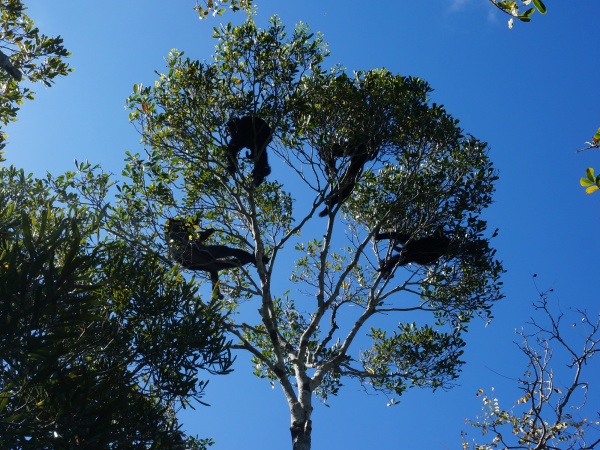
| ||
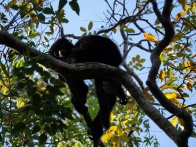
|
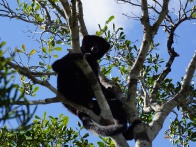
|
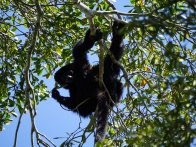
|
The 13 wooden, palm-thatched bungalows are built on stilts and can be adjusted as single, double or family bungalows according to the number of guests. From almost all the rooms guests have great views onto the Andrafiamena Valley with the Ambotonganana hill and Montagne d'Ambre (Ambre Mountain) in the background. The bungalows are separated by trees from each other and are solar-powered, have a large bathroom with hot and cold water and an open terrace.
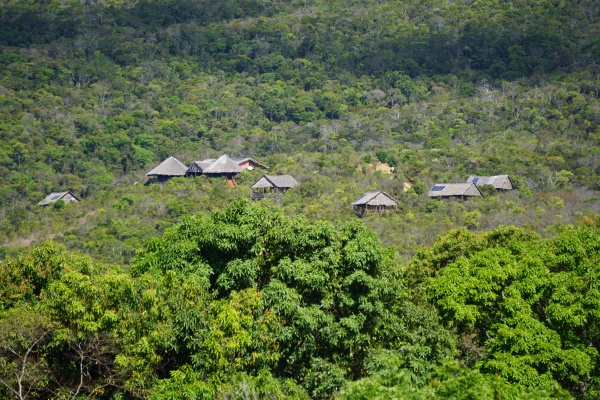
| |||
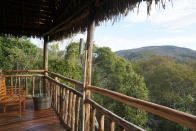
|
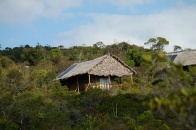
|

| |
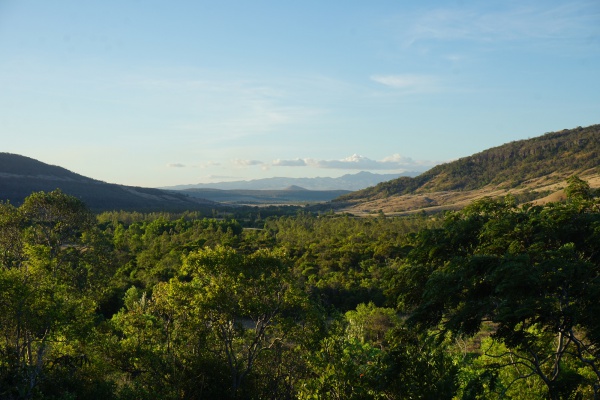
|
|||
The restaurant offers a fixed menu using mainly seasonal ingredients. The bar has a wide selection of rhum arrangée. After a walk through the forest, guests can relax in the comfortable seating area of the bar and restaurant terrace, enjoy the view onto the valley and listen to the sounds of birds and lemurs, maybe combined with a drink before lunch or dinner.
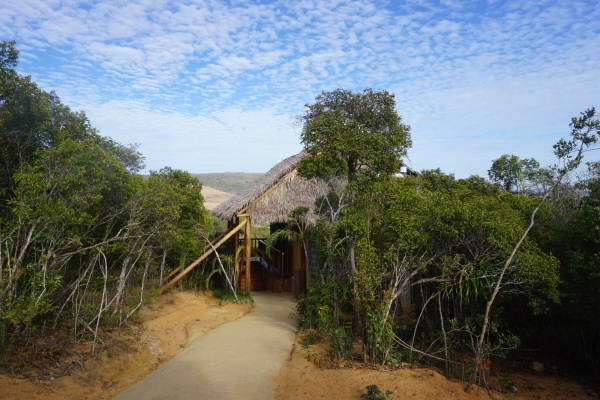
| ||
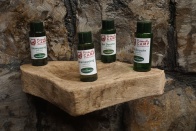
|
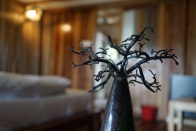
|
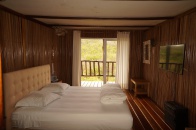
|
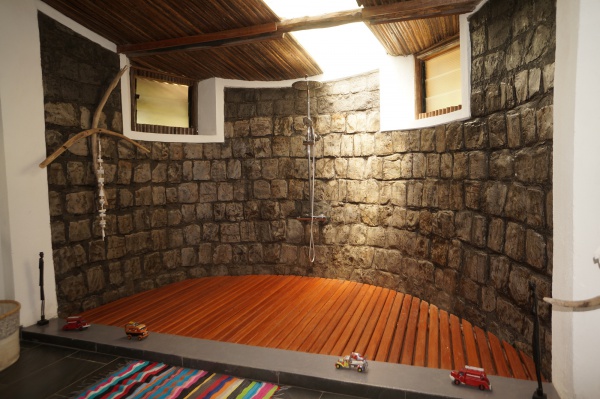
| ||
The majority of the staff come from Anjahankely, a village 10 minutes by foot from Black Lemur Camp. None of the staff from the village has formal training in gastronomy, nevertheless, they are attentive and always have a big smile on their face.
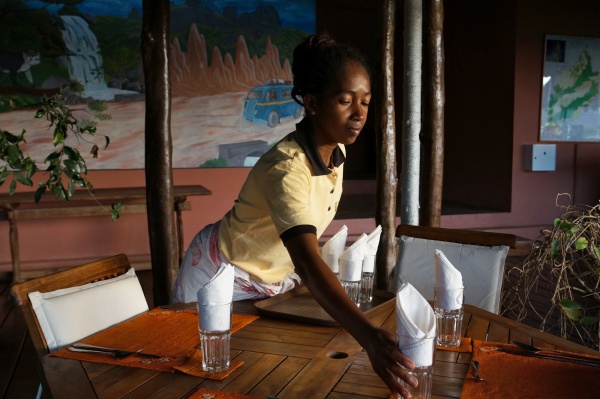
| ||
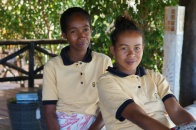
|
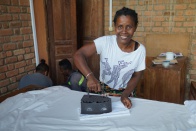
|
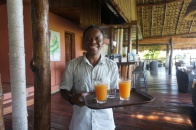
|
Next to the village is Anjahankely Tree Nursery managed by the Fanamby NGO. The tree nursery plants about 30,000 trees a year, amongst them the endemic Schizolaena viscosa, an important food source for the black Sifaka. A visit to the tree nursery as well as Anjahankely Village is always recommended.
There are 17 guides from the village who are familiar with the area and who have been trained to identify various species of local flora and fauna. Depending on the time schedule, visitors can choose between different treks and tours: The Black Sifaka Circuit (3.5km), Natural Pool Circuit (4.75km), Viewpoint Circuit (7km), Cave Circuit (8.37km). For endurance hikers, the approximately 10-hour trek (26.4km) along the footpath connecting the Diana and SAVA region to the village of Tsarahovaka and back may be just the right thing.
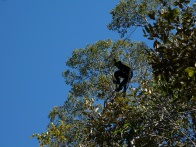
|
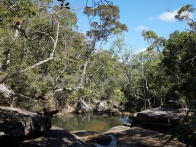
|
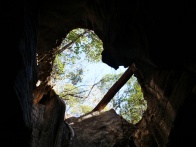
|
The camp is open throughout the dry season from March until end of November and can be reached by car within 3-4 hours from Diego Suarez. The price for a bungalow is 150,000 Ariary p/night. Prices for tours range between 15,000 Ariary and 40,000 Ariary p/person (2019).
Winner of the Best Wider World Tourism Project
On the 3rd November 2019, Black Lemur Camp was announced the winner for the Best Wider World Tourism Project by the British Guild of Travel Writers International Tourism Award in London. The price was received by Serge Rajaobelina, founder and chairman of the Sahanala Group, which manages Black Lemur Camp amongst other camps and environmental projects across Madagascar.
Contact:
Erick Serge RAZAFIMANANTSOA
Director of Sustainable Tourism
Lot 11K 39 Bis Ankadivato
Antananarivo 101
Madagascar
Tel: +261 (0)34 65 078 96 / +261 (0)32 63 223 23 / +261 (0)33 37 895 64
Email: tourisme@sahanala.net
View all Black Lemur Camp photos
